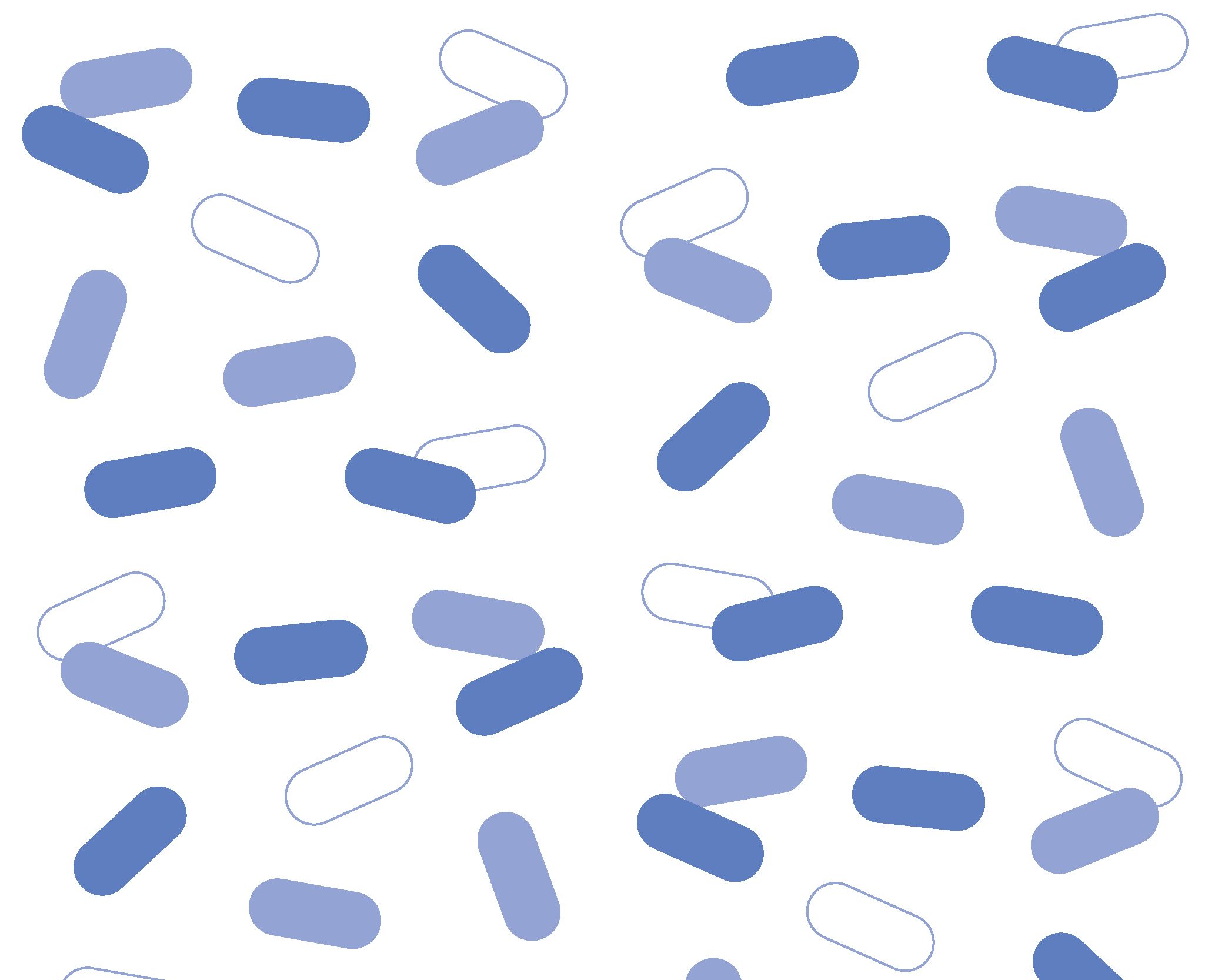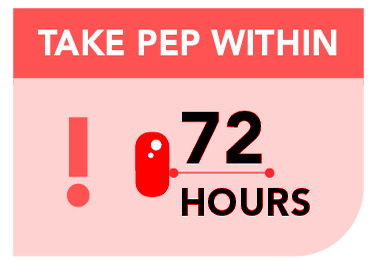PrEP & PEP

Pre-exposure prophylaxis (PrEP)
How does it work? What is PrEP?
PrEP stands for pre-exposure prophylaxis. It is a prescription medication that is taken by HIV-negative people to prevent them from becoming infected with HIV.
Who is PrEP for?
PrEP is for people who do not have HIV and are at higher risk of becoming infected with HIV.
For example:
• If you are a cis man, a trans man, or transgender woman who has anal sex with men
• If your sexual partners have anal sex with men
• If you wish to become pregnant through sexual activity with someone who has HIV
• If you have a sexual partner who is HIV positive and is not on treatment, has a detectable viral load, or their viral load is unknown.
• If you inject drugs
If you think that you are at higher risk of HIV infection, please make an appointment to discuss this with a doctor.
How does it work?
PrEP works by preventing HIV from replicating within the body, therefore preventing infection.
How effective is it?
When used correctly PrEP is highly effective at preventing HIV infection.
This means taking the medication regularly every day. Missing doses may reduce its effectiveness.
How do you take PrEP?
The most effective way to take PrEP is daily. However, using it on demand can also work well for some people.
Daily PrEP
Daily PrEP means that you take PrEP every day continuously. This is the most common way to use PrEP and is suitable for anyone at risk of HIV.
Daily PrEP must be started 7 days before possible HIV exposure and continued for at least 28 days after exposure.
It is important not to miss any pills so you may want to develop some strategies. This might include things such as:
– taking your pills at the same time each day
– setting up a reminder on your phone
– using a 7-day medication box
– keeping your pills in a convenient place, like next to your toothbrush
– keeping a dose on you if you are planning a night out
You will also need to make sure any prescriptions are current and that you have enough supply if you are going away or travelling.
On-demand PrEP
On-demand PrEP is when PrEP is used for short periods, or around single events of possible HIV exposure. It is currently only suitable for cis-gendered men who have sex with men because this is where the research has been completed.
The first dose of 2 tablets needs to be taken between 2 and 24 hours before sex.
A second dose is taken 24 hours after the double dose; a third dose is taken 24 hours after that.
If you are interested in using on-demand PrEP discuss this with your prescribing doctor.
For further information on using on-demand PrEP: click here.
Are there any side effects?
Some people experience side effects. These are more common when first starting PrEP. These can include nausea, headaches, and fatigue. Not everyone experiences these side effects; if they do occur, they usually go away after a few weeks.
If side effects persist, discussing this with your doctor is essential.
Long-term use of PrEP medication may be associated with bone and kidney changes, and ongoing monitoring is required.
Do i still need to use a condom?
Yes. PrEP is only effective in reducing the risk of HIV infection, and use of condoms is essential to protect you from other sexually transmissible infections (STIs), such as chlamydia, gonorrhoea, and syphilis.

How do I get PrEP?
A GP can prescribe PrEP for anyone who is at higher risk of HIV infection. A total of 3 months (28 tablets, with 2 repeats) is prescribed at a time. You then take the prescription to a pharmacy to get the medication, just like any other prescription. Most pharmacies will need to order the medication for you, so there may be a delay of a day or two before it will be available. For the repeat prescription, remember that you will need to remind the pharmacy a few days before you run out so you can continue the medication without missing any doses.
If you do not hold a Medicare card you can still access affordable PrEP. In this case, you will still need to see a doctor to get a private prescription. 28 tablets cost about $40. For more information see PAN.
What happens at my first appointment?
The doctor will discuss your eligibility for PrEP, your past medical history, and the advantages and disadvantages of using PrEP. You will then need to have some blood tests and screening for sexually transmissible infections (STIs). Once you have had these tests you can be given your first prescription for PrEP.
What is the cost of prep?
PrEP costs around $30 to $40 a month and $7.70 for Health Care Card Holders. (This information was correct at time of publishing).
Do I need to continue to see my doctor while I am on PrEP?
Yes, you will need to see your doctor again one month after your first appointment for a repeat HIV test and to check for side effects. You will also need a follow-up visit before your first prescription is finished (about 10 weeks after you start).
From then on, you will only need to see your doctor every 3 months for a review, including STI screening and a new prescription. It is important to time follow-up appointments so that you don’t run out of medication. If you have symptoms or signs of an STI, you should always have a check-up even if you are not due for the 3-month follow-up.
To avoid drug interactions, you should advise other doctors who are prescribing any new medication for you that you are taking PrEP.
Post-exposure prophylaxis (PEP)
What is PEP?
PEP, or post-exposure prohylaxis, is a 4-week course of anti-HIV drugs that are taken immediately after exposure to prevent infection with HIV.
When should I take PEP?
It is recommended that PEP be started as soon as possible after possible exposure to HIV. It works best within 24 hours and must be taken within 72 hours. This gives the drugs the best chance to work against HIV before it becomes established in the body. A course of 28 days is required.
Who should take PEP?
Who should take PEP? Anyone who has had risky contact with a person who has HIV or a person who may have HIV should consider taking PEP. The most common reasons for taking PEP are:
• Sex without a condom with a person who has HIV or might have HIV
• A condom breaking or slipping off during sex with a person who has HIV or might have HIV
• Sharing needles or syringes with a person who has HIV or might have HIV
After risky contact, it is important to discuss the need for PEP with a healthcare provider trained in using these medications, such as a Sexual Health Clinic (or Emergency Department staff if it is after hours). Together, you can determine your risk of acquiring HIV and decide whether you would benefit from PEP and which type of PEP is needed. You should also discuss testing for other STIs. If you are pregnant, think you might be pregnant or are breastfeeding, discuss this with your healthcare provider before starting PEP.

How effective is it?
Taking PEP medication daily for 28 days after exposure reduces the risk of acquiring HIV from that exposure. However, it will not completely remove the risk.
What is involved in taking PEP?
PEP involves taking a 2 or 3 drug combination once or twice daily for 4 weeks. The drugs need to be taken at certain times of the day and may need to be taken with food. It is very important not to miss any doses of PEP to give it the best chance of working.
Does PEP have side effects?
Yes, taking drugs used in PEP can cause side effects such as nausea, diarrhoea, headaches, tiredness, and a rash, although not everyone experiences these. Rarely are more serious side effects reported. You should discuss the possible side effects and how to manage them with your healthcare provider.
Will I need blood tests?
Yes, if you decide to take PEP, blood test will be done to check for HIV, as well as hepatitis B and C. (This is called baseline testing). Testing for other STIs such as syphilis, chlamydia, and gonorrhoea may also be recommended. Your clinician will advise you of the best time for these tests.
Will I need follow up after completing PEP?
Yes, follow-up is essential. STI swabs and urine are often best done one week after the potential exposure. You will need repeat blood tests for HIV at 6 weeks and 12 weeks after the risky exposure. This is called the ‘window period’ because it can take up to 12 weeks for an HIV infection to show up in a test. You will need to protect others from possible infection during this time by using condoms. You also cannot donate blood, sperm, organs, or tissue while on PEP or within the 12-week window period after potential exposure. The clinician may also advise hepatitis B or A vaccination if you are not immune
What else do I need to know while taking PEP?
Taking PEP will not make you immune to HIV and is not a replacement for safe sex or safe injecting practices.
How do I get access PEP in the ACT?
PEP is a regulated medication and is only available through a limited number of prescribers.
During business hours you should contact:
Canberra Sexual Health Centre
Canberra Hospital, Garran ACT
Phone: (02) 5124 2184
After hours you should contact:
The Emergency Department at either:
- The Canberra Hospital: (02) 5124 0000 or North Canberra Hospital: (02) 6201 6111
- Canberra After Hours Locum Medical Service (CALMS): 1300 422 567
- Any NSW public hospital
If you want to talk to someone about PEP you can call
- Meridian Incorporated (02) 6257 2855
- NSW 24HR PEP hotline 1800 737 669
- Canberra Sexual Health Centre: (02) 5124 2184
- Sexual Health Information Line: 1800 451 624
Useful websites for PReP &PEP information
References